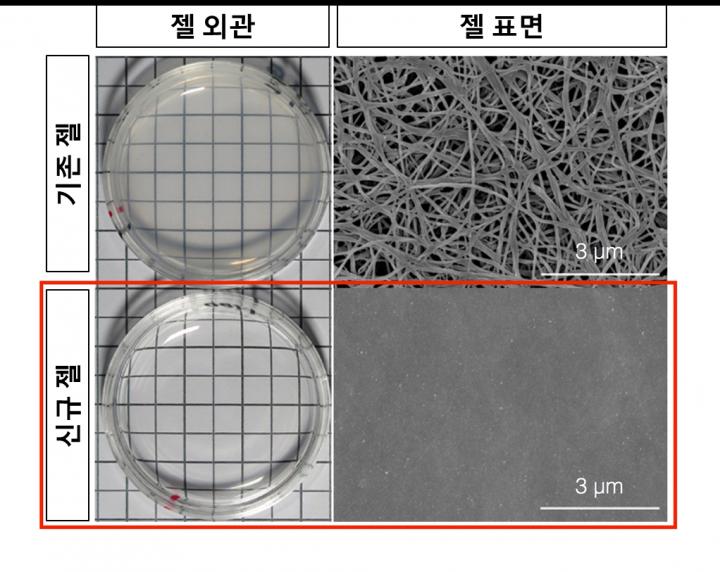A research team led by Dr. Yoichi Kosodo of KBRI, realizing human brain environment using tropical fish

Credit: KBRI
Korea Brain Research Institute (KBRI, President Pann Ghill Suh) announced on Mar. 4 that its research team led by principal researcher Yoichi Kosodo developed a technology to mass produce cerebral cortex* neurons utilizing Induced pluripotent Stem Cells (iPS*).
*iPS(Induced Pluripotent Stem Cells): They are stem cells made of somatic cells, which do not have ethical problems.
Cerebral cortex: Cerebral cortex is the outer layer of neural tissue of the cerebrum of the brain, playing a key role in higher cognitive functions such as perception, thought and memory.
The research outcome will be published in the March issue of Scientific Reports, an international journal, and the name of the paper and authors are as follows.
Name of the paper: Brain-stiffness-mimicking tilapia collagen gel promotes the induction of dorsal cortical neurons from human pluripotent stem cells
Authors: Misato Iwashita (the 1st author, KBRI), Hatsumi Ohta, Takahiro Fujisawa, Minyoung Cho, Makoto Ikeya, Satoru Kidoaki and Yoichi Kosodo (corresponding author, KBRI)
Scientists expect that it will be possible to treat brain diseases by restoring damaged area in the brain by mass producing neurons utilizing stem cells even though cerebral neurons die if one suffers from degenerative brain diseases such as dementia and Parkinson’s Disease.
In fact, a research team of Kyoto University in Japan conducted clinical test of transplanting neurons made of iPS into the brain of a patient with Parkinson’s Disease. If one suffers from Parkinson’s Disease, neurons that generate dopamine, which is one of the brain’s neurotransmitters, die, resulting in symptoms such as muscle stiffness and tremor in hands and feet. Through the clinical test, the patient was treated with new neurons.
The research team cultivated iPS on a gel made of collagen from a fish called Tilapia* and successfully differentiated it into neurons.
Tilapia: It is tropical fish living in Central Africa. Collagen is extracted from its skin.
In particular, the research team cultivated iPS after making collagen gel have the same stiffness as human brain (1500Pa) and confirmed that cerebral cortex neurons have been produced by 60% more compared with existing method.
The stiffness of human brain tissue changes as people age. Recently, it is reported that the stiffness of brain tissue changes with progress of neurodegenerative diseases such as Alzheimer’s disease. The research team reproduced stiffness of brain tissues shown in various kinds of diseases in this research and expects that the cause and mechanism of brain diseases could be identified by cultivating neurons.
Dr. Kosodo said that “this research is meaningful in that the stiffness of brain is found to be an important factor in determining differentiation of neurons.” He added that “we expect that we can mass produce certain neurons to be utilized for neuron regeneration treatment in the future”.
###
Media Contact
Yoichi Kosodo
[email protected]
Original Source
https:/




